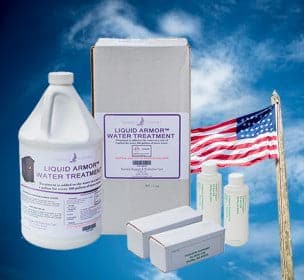Stay Warm and Safe: The Importance of Outdoor Boiler Water Treatment

During the cold winter months, outdoor boiler systems play a crucial role in keeping our homes warm and comfortable. However, to ensure the efficiency and longevity of these systems, it is important to pay attention to water treatment. Proper treatment of the boiler water can prevent corrosion, scale buildup, and other issues that can impact the performance and safety of the system. Let's explore why outdoor boiler water treatment is so important. If you want to discover how proper water treatment can save you time and money in the long run, you can check this website https://outdoorboiler.com/products/hawken-certified-liquid-armor-water-treatment.
The Basics of Outdoor Boiler Water Treatment
What is Outdoor Boiler Water Treatment?
Outdoor boiler water treatment involves the use of chemicals and additives to control the quality of the water in the boiler system. The primary goals of water treatment are to prevent corrosion, inhibit the formation of scale, and control the growth of harmful bacteria.
How Does Water Treatment Work?
Water treatment works by introducing chemicals into the boiler water that react with impurities and contaminants to neutralize them. This helps to maintain the proper pH levels in the water, prevent the buildup of scale on heating surfaces, and protect the system from corrosion.
The Importance of Outdoor Boiler Water Treatment
Preventing Corrosion
- Corrosion can weaken the boiler system and lead to leaks or other malfunctions.
- Water treatment helps to create a protective barrier on the internal surfaces of the boiler to prevent corrosion.
Reducing Scale Buildup
- Scale buildup can reduce the efficiency of the boiler system and lead to costly repairs.
- Water treatment helps to prevent the formation of scale by controlling the deposition of minerals in the water.
Ensuring Efficient Heat Transfer
- Clean boiler water allows for better heat transfer, resulting in improved efficiency and lower energy costs.
- Water treatment helps to keep the heating surfaces free from scale and other deposits that can inhibit heat transfer.
The Risks of Neglecting Water Treatment
Increased Energy Costs
- Without proper water treatment, the boiler system may operate less efficiently, leading to higher energy consumption and increased heating costs.
Equipment Failure
- Corrosion and scale buildup can cause damage to the boiler system, resulting in costly repairs or the need for premature replacement of equipment.
Potential Health Risks
- Untreated water in the boiler system can allow the growth of harmful bacteria, posing a risk to the health and safety of occupants in the building.
Implementing Outdoor Boiler Water Treatment
Consulting with Professionals
- It is important to work with water treatment professionals to determine the appropriate treatment plan for your specific boiler system.
- They can perform water quality tests, recommend the right chemicals and dosage, and provide ongoing maintenance to ensure the effectiveness of the treatment.
Regular Monitoring and Maintenance
- Regularly monitor the water quality in the boiler system to ensure that the treatment is working effectively.
- Perform routine maintenance tasks such as flushing the system, checking for leaks, and adjusting chemical levels as needed.
Educating Users
- Ensure that anyone using or maintaining the boiler system is properly trained on the importance of water treatment and how to follow the recommended procedures.
- Provide clear instructions on how to handle and store water treatment chemicals safely.
Conclusion
Outdoor boiler water treatment is a critical aspect of maintaining the efficiency and safety of boiler systems. By preventing corrosion, reducing scale buildup, and ensuring efficient heat transfer, water treatment helps to prolong the life of the equipment and lower energy costs. Neglecting water treatment can lead to equipment failure, increased energy consumption, and potential health risks. It is important to work with professionals, monitor water quality regularly, and educate users on the importance of proper water treatment practices.